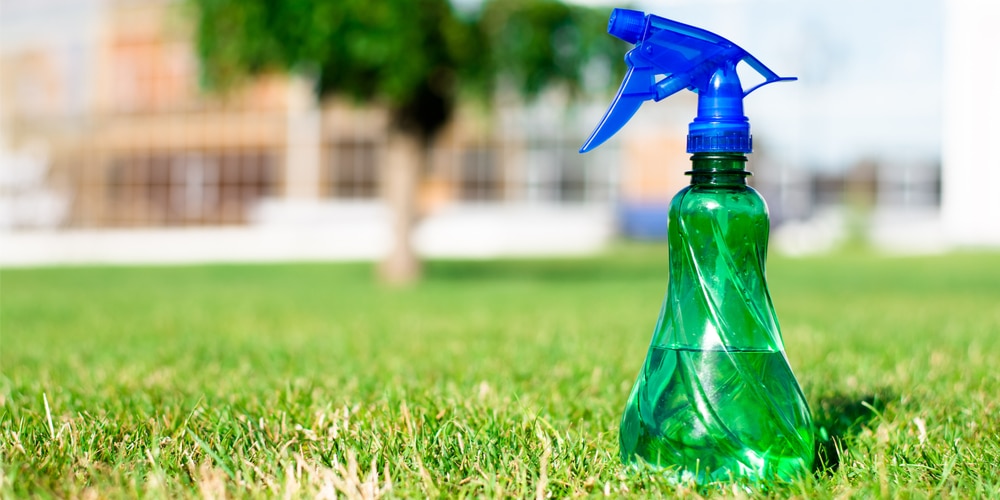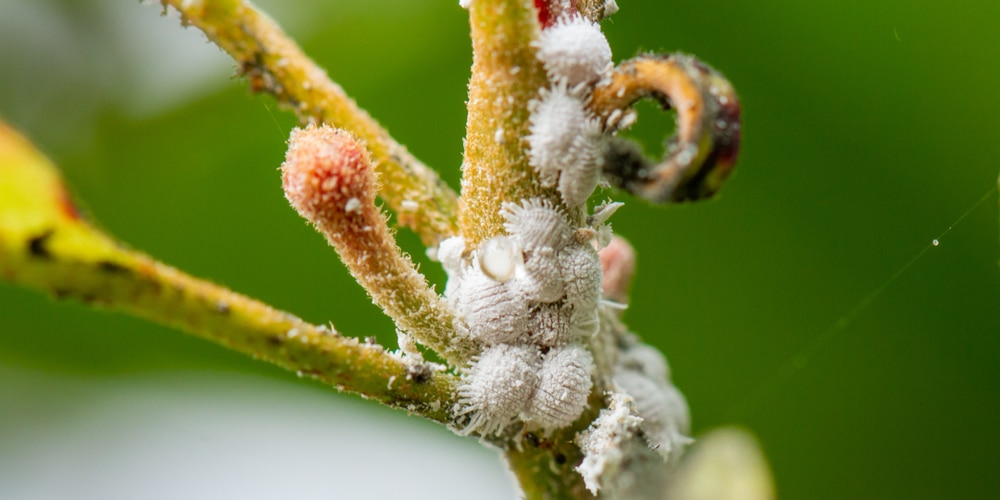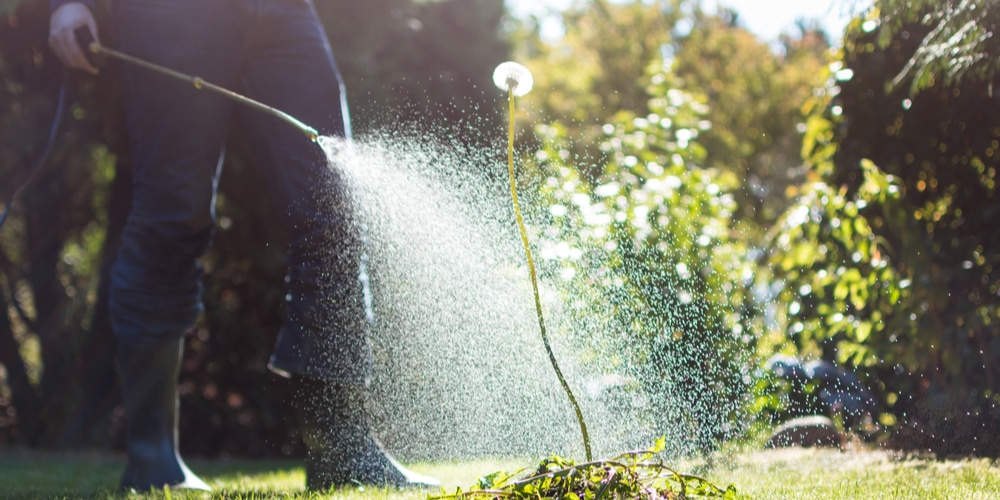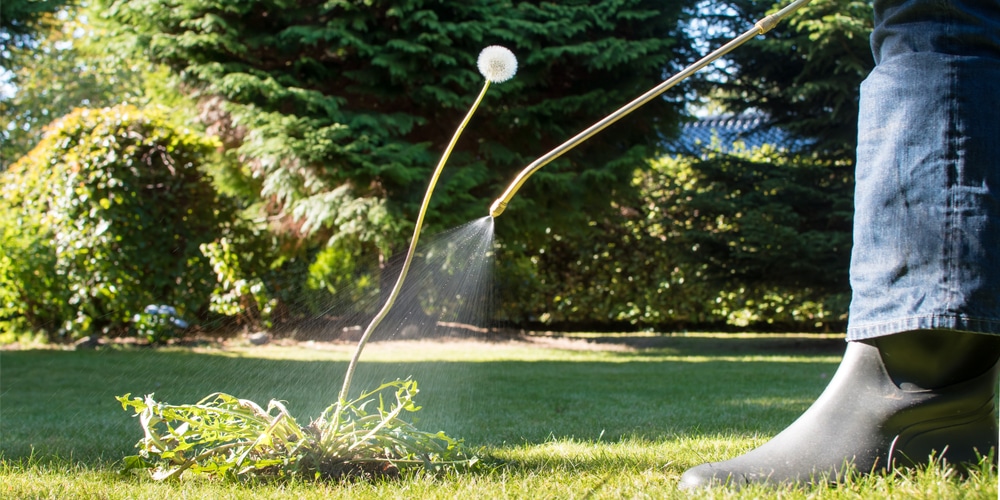If you are dealing with frequent attacks from pests and diseases on your plants, you might have come across the tip of spraying their leaves with alcohol. This recommendation is not new: indeed, many people suggest you use alcohol as an insecticide to kill the annoying pests that like to feed on your favorite plants. But can you spray alcohol on plants? Or will this practice eventually damage your plant instead of benefitting them? Read on to find out.
If you aren’t sure spraying alcohol on your plants is the best idea, you’ve landed in the right place. Here, we put together all you have to do about using alcohol on your plants and how to make the most out of it (or why you should avoid it).
Is Alcohol Safe To Use On Plants?

You might know (from experience) that rubbing alcohol on your plants is effective for getting rid of some insects such as aphids and mealybugs. It works best on soft-bodied pests, and you can also use it to control your plant’s growth and development. Indeed, at the proper concentrations, alcohol can enhance or inhibit growth.
The best way to use alcohol on your plants is to dampen a cotton bug and apply it as a spot treatment. Doing so will limit stress caused to your plants. You can even use it as an herbicide to keep weeds at bay. But, if you don’t know what concentrations work best for your plants, you might cause damage to your green friends.
So, to give you a concise answer to the question “can you spray alcohol on plants?”: yes, you can, but you have to be careful at how you use it. Also, some plants might be more sensitive than others to the substances.
To avoid harming your plants and prevent them from alcohol burns, you can dilute the compound with water and soap. Also, don’t forget to test the liquid on a couple of leaves first. But keep reading! We have more to tell you about spraying alcohol on plants!
How Does Alcohol Kill Insects?
If you notice mites, aphids, scales, mealybugs, whiteflies, or other small insects that might be feeding on your plant, you should take proper measures to contain their spread and avoid infestation. One of such measures includes spraying your leaves with alcohol or using a cotton bud submerged in the compound.
The way alcohol helps you get rid of pests is by sucking out water from the insects and penetrating through their waxy skin, causing them to die. Most gardeners prefer using ethanol, which seems more effective at killing pests. You can use 70% strength alcohol and mix it with water.
The best ratio is equal parts alcohol and water. But do not fall into the trap of using products at higher concentrations: you might cause more harm than good to your plant. If you have a 95% strength alcohol at home, dilute the compound with more water.
Before spraying your entire plant, test the mixture on a leaf or two and wait for a couple of hours. If you don’t notice any adverse reaction within five hours, you’re safe to add the compound to your entire plant. Avoid using concentrated solutions, as you might burn your plant’s roots.
If you can eliminate pests without using alcohol, try to do so before adding any substance to your plant. For instance, if you see snugs or snails, remove them with your hands. The objective is to cause the minimal stress possible to your plants while effectively eliminating pests.
Why Can Alcohol Control Plant Growth?
You might have heard about spraying your plants with alcohol to eliminate pests and diseases. But did you know that alcohol spray can control plant growth? Well, the reality is that it can. Depending on how you use it, you can inhibit or enhance your plants’ development.
You can apply methanol to stimulate the growth of your plants. The substance works best for growing tomatoes, peas, potatoes, eucalyptus, or sunflowers. The same rules we described above apply to this situation: don’t use high concentrations of the substance to avoid damaging your plants. In general, you will achieve the best plant yields by applying a solution of 30% alcohol to 70% water.
If you don’t like regularly pruning your plants, you can slow their growth down by applying a 5% ethanol solution. This type of alcohol is the one most alcoholic beverages have.
But avoid using wine or beer: the sugar in those drinks might encourage the proliferation of bacteria, weakening your plants. Plus, using it in concentrations higher than 5% might stress or even kill your plant. You can get similar slow-down effects with isopropyl: you can buy it in local stores, supermarkets, or on Amazon (or other online channels).
Also, if you like the idea of enjoying a longer-lasting flowering season, consider spraying ethanol to your blooming plants. It will keep the flowers smaller but will make them last longer. If you spray alcohol on indoor plants, only do so with proper ventilation. Otherwise, you might intoxicate your plants (and yourself).
Keep in mind that some plants might absorb extra alcohol through their roots: because the compound can cause severe dehydration, too much alcohol will eventually kill your plant.
Using Alcohol as Weed Control
Alcohol can be a natural herbicide. You can add it to the soil to prevent weeds from spreading. And the best part is that you won’t even have to buy anything species: you can pour vodka, whisky, cognac, or whatever alcohol you might have at home.
However, don’t forget to water your plants before applying this weed control. Use it with caution! Most often than not, nothing else will grow in the soil after you kill weeds with an alcohol solution. So, you might remove weeds, but you can also cause your houseplants to die of thirst. To minimize damage, spray your pants during the day and ensure you expose them to adequate amounts of sunlight.
Can You Spray Alcohol On Plants?: The Bottom Line
So, in essence, you can safely spray alcohol on your plants to get rid of pests and weeds. But to avoid damaging your greens, you need to do so with care.


